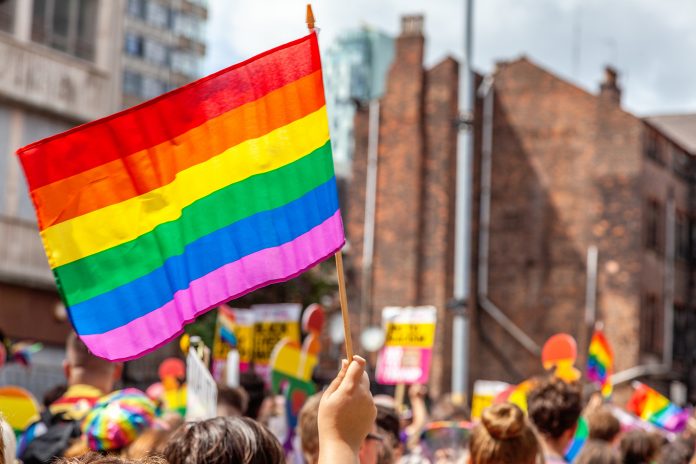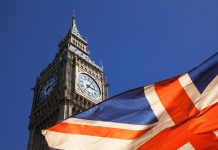With its Online Safety Bill, the UK seeks to set a “world-leading” legislative example for other nations to follow, but how will the LGBTQ+ community be affected globally?
In its current state, Clause 122 of the Online Safety Bill will not only endanger LGBTQ+ people in the UK but will establish the legal precedent and technical framework to enable mass surveillance, which can and will be used as a pretext to persecute LGBTQ+ people in countries where their lives are already at risk.
The Clause would require that any platform, messenger, or service must detect content deemed impermissible by the government. To comply with this clause, all electronic communication, however intimate and private, will need to be scanned. Every text, every photo, every group chat, on every service.
A pretext to persecute LGBTQ+ people
Privacy often seems like an abstract concept, but undermining private communication poses a very real threat to LGBTQ+ people.
End-to-end encryption, which is threatened by Clause 122, is one of the most important safeguards to protect people’s personal information against data breaches. Losing strong and reliable end-to-end encryption, the UK becomes more vulnerable to attacks which can expose personal information and, especially in the case of LGBTQ+ youth, lead to non-consensual outings with potentially disastrous consequences.
The Online Safety Bill and international dangers
But the risks of Clause 122 extend far beyond the UK’s borders.
LGBTQ+ people face persecution across the world. In 66 countries, private, consensual, same-sex activity between men is illegal. For women, it is illegal in 41 countries. Further, 14 countries explicitly criminalise the gender identity and expression of trans people, and many more countries target trans people under same-sex activity laws.
In 12 countries globally, LGBTQ+ people could face the death penalty
LGBTQ+ people living in 12 countries globally face the death penalty, with countries like Iran, Northern Nigeria, Saudi Arabia, Somalia, and Yemen putting it into practice.
Governments hostile to LGBTQ+ communities are already using digital targeting to identify and persecute LGBTQ+ people. The UK’s Online Safety Bill could become the playbook for countries looking to use digital surveillance to identify and persecute their LGBTQ+ citizens.
In countries where being LGBTQ+ is socially and legally dangerous, online spaces and digital communication are essential for people to find their communities. At Stonewall, we have seen time and again that private, secure, and encrypted communications have been critical in our mission to protect and support LGBTQ+ communities in high-risk countries.
Governments hostile to LGBTQ+ communities are already using digital targeting to identify and persecute
Since seizing power in 2021, the Taliban has intensified attacks against the basic autonomy and human rights of LGBTQ+ people in Afghanistan, forcing them to flee and seek asylum elsewhere. Stonewall has been working with ILGA Asia since 2021 to provide the LGBTQ+ community in Afghanistan with humanitarian aid and asylum support using end-to-end encrypted messengers like Signal and WhatApp.
Shortly after the Russian invasion of Ukraine, Signal was the quickest and safest way to share sensitive information with other trusted support organisations to coordinate help for LGBTQ+ people trying to evacuate. The privacy of their messages was paramount to their survival and was only made possible through a reliable, encrypted means of communication.
Our caseworkers rely on end-to-end encryption in apps like Signal and WhatsApp to protect highly sensitive information. Both messengers have stated publicly that they would rather leave the UK than compromise on privacy. This means that our UK-based organisation would lose critical contact mechanisms for high-risk populations in Afghanistan, Ukraine, and beyond.
Undermining encryption and the security of private communications will harm LGBTQ+ people
It will harm them in the UK, where their private data can be easily breached. It will harm those abroad who depend on Stonewall for emergency support. And it will harm those in countries that will model their legislation on the Online Safety Bill. They will be left vulnerable to prosecution, persecution, and immediate bodily harm.
Should it come to pass that the UK is ultimately responsible for setting a new bar of technical measures that enable that persecution, its “world-leading” legislative aims, and its global leadership, may come to be seen in a very different light.
This piece was written and provided by Robbie de Santos, Director of External Affairs at Stonewall
Editor's Recommended Articles
-
Must Read >> Study finds suicide risk disparities in LGBT adults















